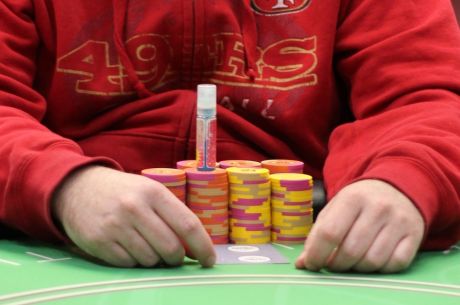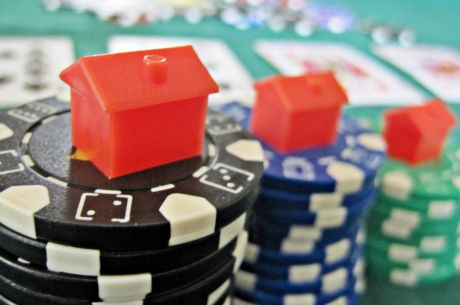"Investing" In Your Game: TradingHD's Advice for Developing Your Poker Mind

Last week we were discussing some of the ways poker can be said to resemble trading stocks, in particular how both highlight differences between long-term versus short-term thinking, as well as how in both your timing (good or bad) directly affects your profitability.
Other trading tips shared by TradingHD contributor Lex van Dam similarly connects with poker strategy, such as the advice he shares in a post titled , the first in a five-step plan to help investors discover their own trading strategies rather than rely solely on professional money managers.
Obviously there’s a very real satisfaction that comes with figuring out for yourself solutions to problems you face. Nothing feels better than unlocking the puzzle of a poker hand and making the right play to earn the biggest pot. The idea also applies to being able to solve the problem of deciding when to buy or sell stocks so as to ensure the most profit.
Van Dam — a hedge fund manager and also the creator of the BBC television series Million Dollar Traders — explains how it is important for investors to develop their own ideas about trading “rather than copy them from investor magazines, newspapers or tip-sheets.” Even worse is the investor who buys or sells based on rumors or overheard tips. “More money is lost by listening to others than by any other reason,” he explains.
But how do you develop your own ideas about investing if you haven’t had much in the way of trading experience?
Van Dam suggests starting with thinking about products you like and use, then doing research on those companies to see what their histories suggest regarding their attractiveness as investments. He advises investigating other areas such as economic trends, local and global developments, as well as how the market as a whole has been performing as you add to your knowledge of factors that contribute to a stock being more or less likely to succeed.
All of this study helps the novice investor become more informed and better able to generate those “original trading ideas” that can be so valuable. That said, like in poker, gathering actual experience also goes a long way toward helping you decide whether or not those ideas you’ve developed are in fact good ones.
For example, when we first learn basic poker strategy and how, say, A♦K♦ rates as a premium starting hand in no-limit hold’em, we apply that knowedge by raising or reraising before the flop in order to build pots and increase our chances of winning more with our big hands. In a particular game, we might discover how even if we miss the flop with our ace-king, making a continuation bet against certain players will win us the pot, anyway. That becomes an investment strategy — or “trading idea” — we continue to use going forward.
That’s not to say that continuation betting is necessarily an “original” idea, but it becomes our own, in a way, once we’ve put it into practice. And if we keep our minds open and keep doing “research,” we might well start modifying that idea further, making it even more our own (so to speak).
Van Dam describes a similar process happening in investing, where a trader might find research pointing him or her to what seems a “great company” — like a great starting hand — but further study and/or experience proves that company may not in fact be such a great investment due to other factors relevant to that moment.
“A great stock is not the same as a great company,” explains van Dam, “it is a stock that makes us money.”
By the same token, A♦K♦ is a great starting hand, but it is how we play that hand — how we choose to “invest” in it with our preflop raises, our continuation bets, and even our folds when the hand appears beaten — that determines whether or not it will make money for us.
Discover more trading tips including other ways to develop your own investment ideas at .
Want to stay atop all the latest in the poker world? If so, make sure to get PokerNews updates on your social media outlets. on Twitter and find us on both and !
In this Series
- 1 "Investing" In Your Game: Applying TradingHD's Timing Tips To Your Poker Game
- 2 "Investing" In Your Game: TradingHD's Advice for Developing Your Poker Mind
- 3 "Investing" in Your Game: Considering the Psychology of Risk in Poker with TradingHD
- 4 "Investing" in Your Game: TradingHD on Risk Management in Poker
- 5 "Investing" in Your Game: TradingHD on Acting With Deliberation in Poker









